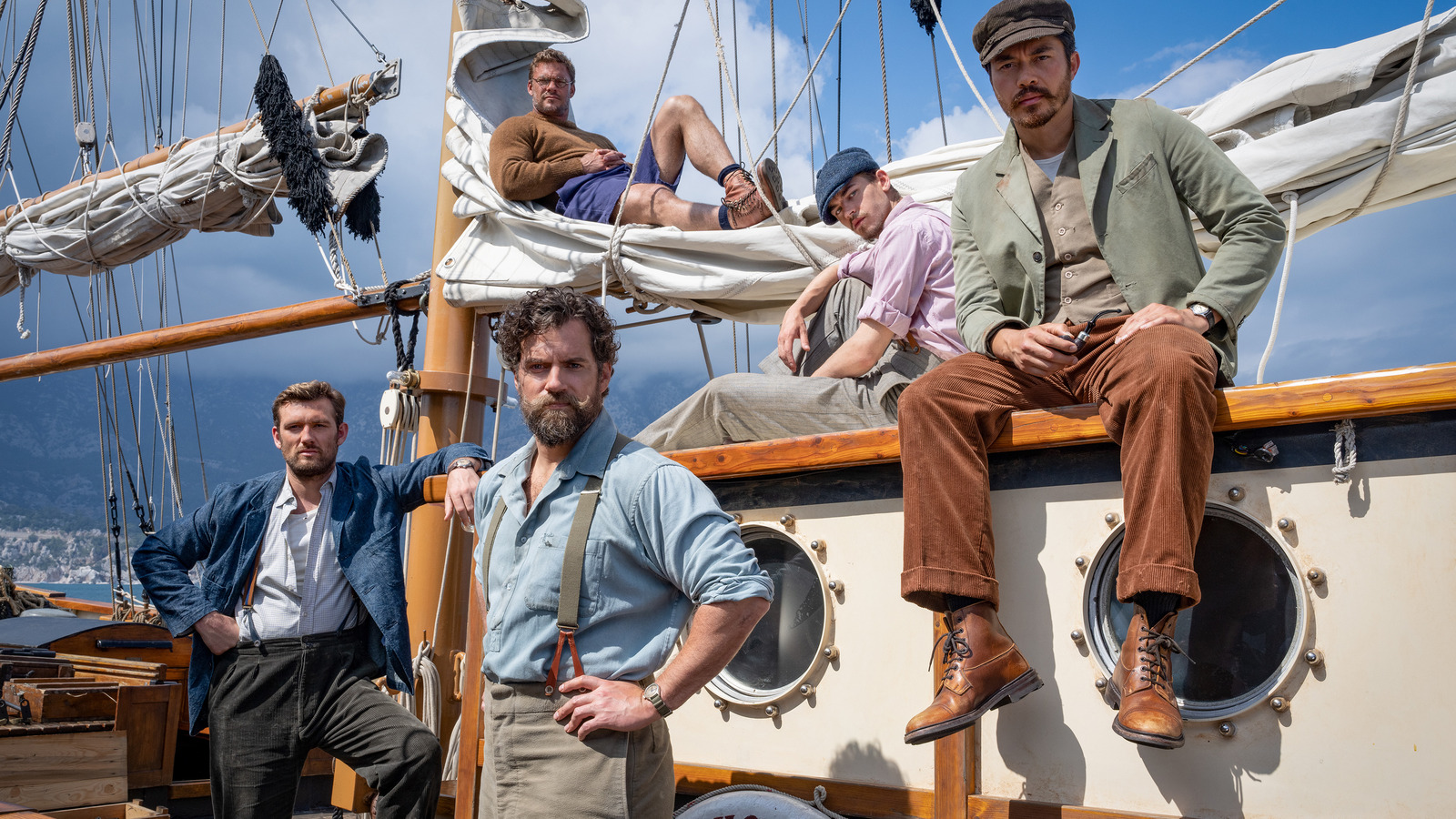
In the early going, the plot follows the familiar (if well-worn) playbook of “The Magnificent Seven” and countless other getting-the-team-together adventures. As German U-boats wreak havoc throughout the Atlantic Ocean, preventing the United States from entering the war in earnest and all but ensuring a resounding European surrender to fascism, British Prime Minister Winston Churchill (a nigh-unrecognizable Rory Kinnear, bellowing orders while buried under prosthetics and makeup) concocts a scheme codenamed Operation Postmaster: a ragtag team of agents will slip behind enemy lines and literally blow up the U-boat supply chain. The target? The Casablanca-like port of scum and villainy located on the Spanish island of Fernando Po, neutrally positioned between political lines. This just so happens to be where the Italian vessel Duchessa, the main supplier of the U-boat fleet and their main objective, is currently anchored. Obviously, the only people for the job are the formerly incarcerated Major Gus-March, his motley crew of ne’er-do-wells, and two smooth-talking agents on the inside.
It’s fair to say that this based-on-a-true-story premise of a renegade team embarking on the first black-ops mission in modern warfare might as well have been tailor-made for the director’s sensibilities. Unfortunately, even an ensemble cast as strong as this one, bolstered by a scene-stealing performance as effortlessly compelling as Ritchson’s, can’t entirely make up for a script (credited to Ritchie and co-writers Paul Tamasy, Eric Johnson, and Arash Amel) that struggles to find a common thread between a trio of distinct storylines.
At times, the experience of watching “Ungentlemanly Warfare” comes across as pivoting between three films in one. The swaggering antics of Cavill’s Gus, Ritchson’s Anders, Geoffrey Appleyard (Alex Pettyfer), Henry Hayes (Hero Fiennes Tiffin), and Freddy Alvarez (Henry Golding) is by far the most effective of the bunch. Meanwhile, the behind-the-scenes drama between Churchill, Cary Elwes’ Brigadier Gubbins (an obvious inspiration for “M” in the Bond franchise), and Ian Fleming himself (Freddie Fox, who is given the indignity of introducing his character as “Fleming, Ian Fleming” in an apparent hate crime against subtlety) ends up too disconnected and compartmentalized from the main action to ever really invest in. Finally, the extended “Casablanca” homage in Fernando Po revolving around Babs Olusanmokun’s Rick Blaine stand-in/undercover casino owner Richard Heron and Eiza González’s secret agent Marjorie Stewart disarming the suspicions of main villain Heinrich Luhr (Til Schweiger, whose self-referential casting is a bit on the nose) at least provides a certain amount of tension and stakes.
But even this is saddled with some of the film’s most clichéd (yes, Ritchie puts a hat on a hat by having a character directly quote “Casablanca” for those who didn’t already get it) and — in González’s case, whose narrative function essentially boils down to seducing a Nazi — borderline regressive tropes.




